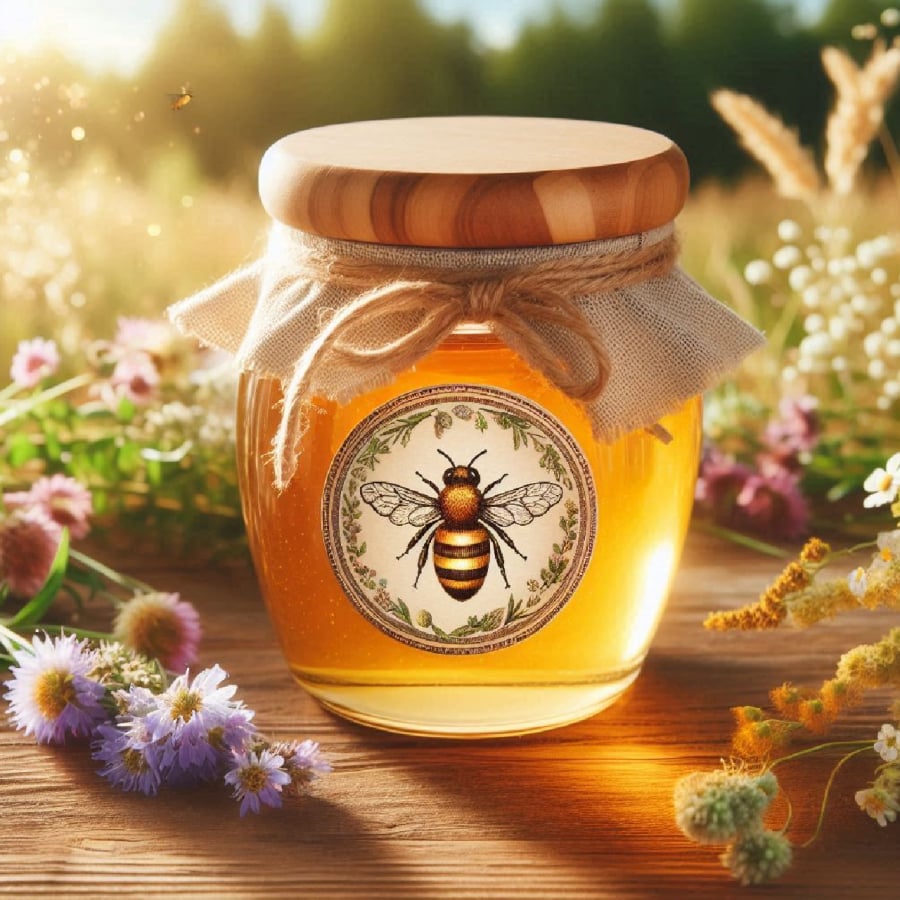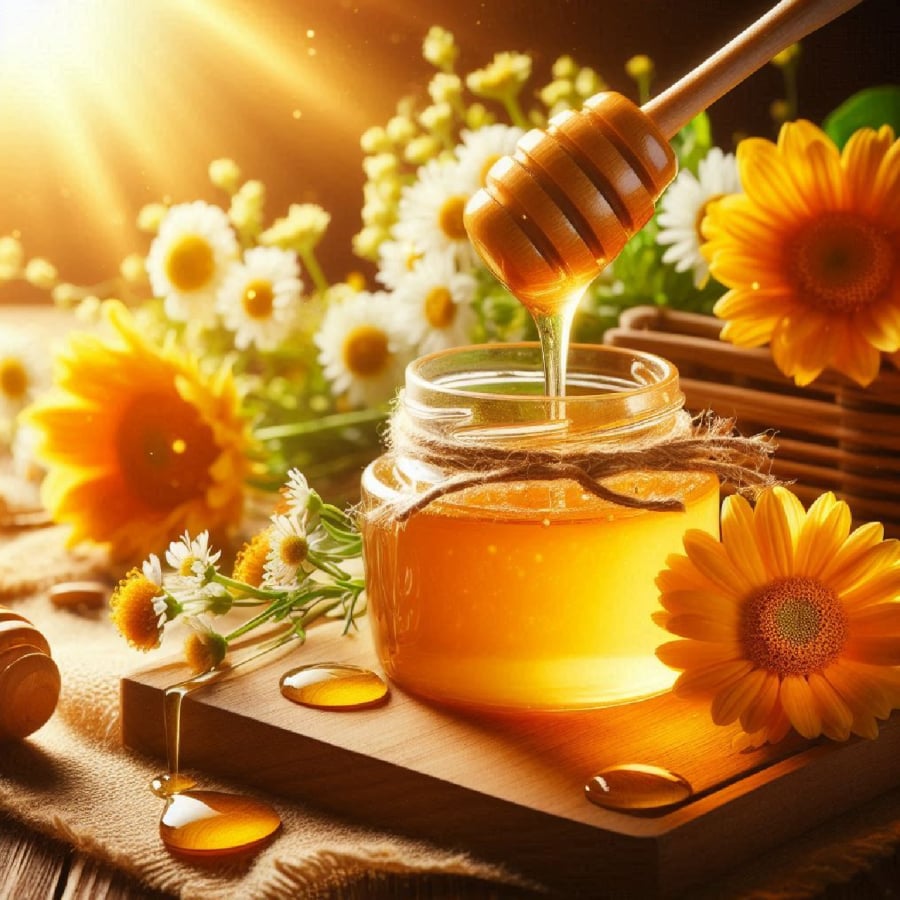What Are the Health Benefits of Honey?
Honey is a natural product made by bees from the nectar of flowers. Bees collect the nectar and bring it back to their hive, where it is broken down into simple sugars and stored. Honey is a natural sweetener and, when consumed in moderation, can offer some health benefits.
- Nutritional Boost
Honey contains glucose, fructose, vitamins, minerals, and other nutrients that can provide energy and support a healthy diet. It is a natural source of simple sugars that can be easily digested and absorbed by the body.
- Soothes Coughs
Honey has long been used as a home remedy for coughs. It helps soothe the throat and can reduce nighttime coughing. Honey is often combined with other ingredients such as lemon, quince, or rose hips to create effective folk remedies for coughs.
- Promotes Intestinal Health
Honey is a mild laxative and can help relieve constipation when consumed appropriately. It promotes a healthy gut and can improve overall digestive health.
- Boosts Immunity
Honey is packed with nutrients and antioxidants that can boost the immune system and increase the body’s resistance to infections. It also has antibacterial and anti-inflammatory properties, which can aid in healing minor wounds.

Who Should Not Consume Honey?
- Allergic Individuals
Those with allergies to honey or pollen should exercise caution when consuming honey. Mild reactions can include itching and hives, but more severe cases may result in dangerous anaphylactic symptoms such as difficulty breathing and shock.
- Diabetics
While many believe honey to be a healthier alternative to sugar, it is important to note that honey also contains significant amounts of natural sugars. Its high glycemic index can cause a rapid increase in blood sugar levels, so diabetics should monitor their consumption and consult their doctors for appropriate dosage advice.
- Individuals with Liver Disease
The liver is responsible for metabolizing fructose, a sugar found in honey. People with liver diseases, especially cirrhosis, may have difficulty processing fructose, leading to its accumulation in the liver and causing further damage. Therefore, those with liver conditions should refrain from consuming honey.
- People with Digestive Disorders
Honey acts as a laxative and increases intestinal motility. Therefore, it is not recommended for individuals experiencing diarrhea. Honey’s hygroscopic nature draws water from cells into the intestine, increasing the volume of waste to be expelled and potentially worsening diarrhea symptoms.
- Individuals Taking Medications
Honey may interact with certain medications, altering their effectiveness. For example, consuming honey while taking blood-thinning medication can increase the risk of bleeding. Always consult your doctor or pharmacist before combining honey with any prescription drugs.

3 Things to Avoid When Using Honey
- Do Not Mix Honey with Boiling Water or Heat it
The nutrients in honey are sensitive to high temperatures and can be destroyed when exposed to heat. Avoid mixing honey with boiling water or heating it directly.
- Do Not Consume Excessive Amounts of Honey
According to VTCnews, 21 grams of honey provides 69 calories. Excessive honey consumption can lead to a caloric surplus and rapid increases in blood sugar levels.
- Do Not Combine Honey with Soybean
Although both honey and soybean are nutritious and offer health benefits, combining them can result in biochemical reactions between the enzymes, minerals, and proteins in honey and soybean. This may lead to digestive issues such as bloating and diarrhea.
In conclusion, while honey offers numerous health benefits, it is important to be aware of these precautions to avoid any adverse reactions. Always consume honey in moderation and consult a healthcare professional if you have any concerns or existing health conditions.
The Ultimate Guide to Honey: Exploring the Different Varieties and Their Unique Benefits.
Introducing the world of honey – a delightful and diverse treat found in nature’s pantry. With an array of options available, the question arises: which honey is the best and tastiest? Join us on a sweet journey as we explore the fascinating varieties of honey and uncover the unique qualities that make each one special. From the delicate flavors of wildflower honey to the rich, dark depths of buckwheat honey, there’s a perfect golden nectar waiting to be discovered and savored. Let’s embark on this tasty adventure and find the honey that truly hits the spot!
































